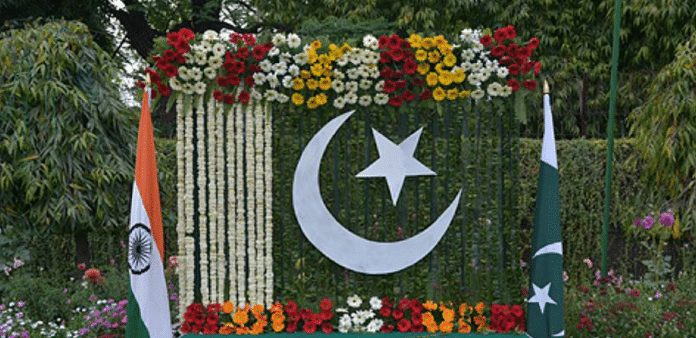The harassment is not limited to Indian diplomats. Pakistanis who approach the Indian High Commission for visas to visit family in India also become victims.
The professional and personal lives of Indian diplomats in Islamabad and Pakistanis in New Delhi have always been hostage to Indo-Pak relations.
During my posting in Islamabad from 1997 to 2001, I have seen things going up and down like an erratic and uncontrolled sine curve. We went from the bonhomous high of the Prime Minister Atal Bihari Vajpayee’s Lahore visit in February 1999 to the lows of Kargil in May the same year. During the highs, even permission to travel anywhere in Pakistan was given on the phone. At low points, even travel to India by road via Lahore was either denied or delayed.
But what has changed now is the attitude of the government in New Delhi and that of the US towards Pakistan. While Pakistan is gradually coming around to holding talks with US officials to address their concerns, or at least appearing to do so, it detests doing the same for India. In the case of the US, Pakistan may feel it is a transitory phase till Donald Trump lasts; in the case of India, it can’t ever give up its long-term state policy of using violence. Pakistan should understand that the present aggressive posturing on the international border and the LoC in J&K is the Indian response to terror strikes here.
There is no doubt that the relationship between the two countries is touching a new low. And the heat is being felt by diplomats and their families in Pakistan. Indian diplomats in Pakistan, even in normal times, remain under intimidating surveillance. From the moment they wake up and till they hit the pillow, they are under watchful eyes of the Pakistan IB and ISI. If given a chance, the intelligence operatives would not even mind entering into the chambers of doctors whom Indian diplomats and their family members consult. It is daily harassment.
The harassment is not limited to Indian diplomats. Ordinary Pakistanis who approach the Indian High Commission for visas for to visit family members in India also become victims. They are at the complete mercy of intelligence operatives, who lurk around outside the visa gate and under the trees, yards away from the main gate of the High Commission. This is part of their aggressive posture.
The same attitude is maintained if Indian diplomats reach out to local interlocutors. In my time, they would let Indians meet only those who were ‘security cleared’. All others would be dissuaded or sometimes even physically prevented. It happens all the time. All my journalist friends would feel the heat, as and when they met me for visas or any other matter. Even cricketers would send their visa requests through some lowly official of the Pakistan Cricket Board to avoid a visit to the High Commission.
In such a situation, reciprocity or tit-for-tat becomes the guiding principle, rather than the 1961 Vienna Convention on diplomatic relations — on diplomatic intercourse, privileges and immunities. This literally means “if you dare do anything to our diplomats and officials, we will hit you back”.
In Pakistan, the retaliation was most of the time highly disproportionate. No civility was maintained by the Pakistanis whenever their official was arrested in Delhi for spying. The Indian intelligence agencies are far more restrained.
Diplomats can’t function in an atmosphere of duress and intimidation. Safety, security, free movement and regular interactions are essential for their effective functioning. Tit-for-tat has negative connotations, hence must be avoided. Both sides should calmly discuss and address the concerns recently raised by diplomats of either side.
Avinash Mohananey is a former IB officer who has served in the Indian High Commission in Islamabad.



